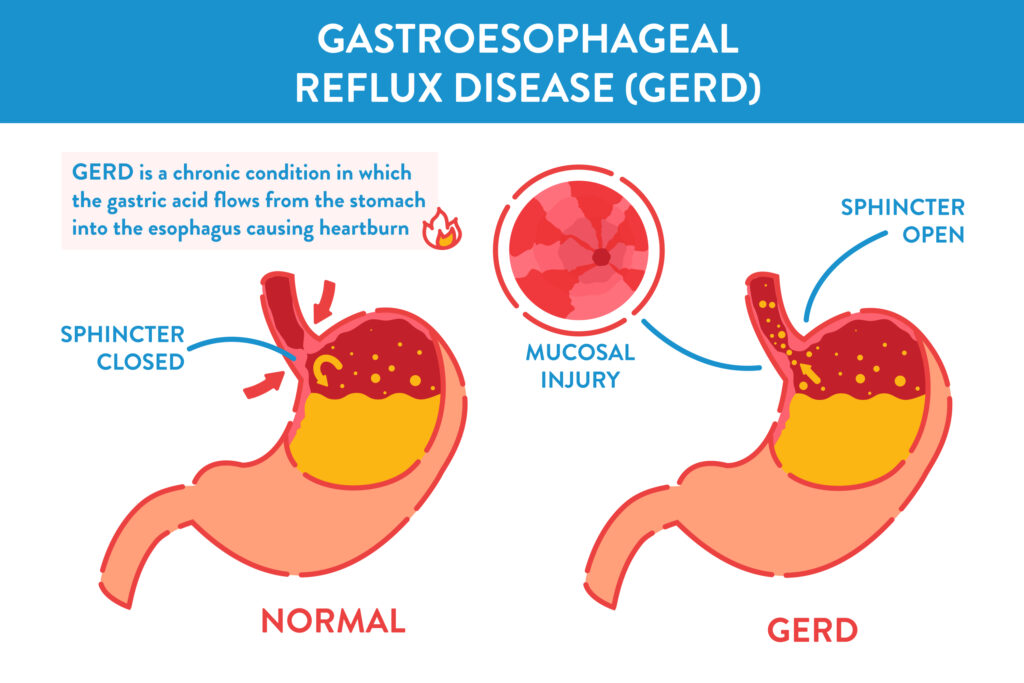Posted by: Maryland ENT in General
Does your voice often seem hoarse? Do you have difficulty controlling how loud you are when you’re speaking?
These are some signs that you may have voice problems, which can develop for several reasons. Keep reading to learn more!
What is a Voice Problem?
Voice problems include discomfort or pain when speaking or difficulty controlling loudness, voice quality, or pitch. Your voice box or larynx consists of two vocal cords that vibrate every time air passes between them to produce sound or your voice.
Your voice depends on your larynx, mouth, throat, and lungs working smoothly and allowing you to speak. If any of these parts are affected, there’s a good chance your voice will be compromised as well.
Anyone can develop problems with their voice, but high-risk jobs like singing, teaching, and preaching can make you more prone to voice issues. If you develop voice problems, your voice often goes back to normal after a couple of days.
But for some people, the issue can persist, preventing them from talking with ease. Because your voice is a crucial aspect of social interaction and communication, it’s essential to be on the lookout for symptoms that point to voice problems and seek help:
Signs of Voice Problems

There are different symptoms of voice problems like vocal fatigue, sudden or gradual change in vocal quality, and excessive throat clearing. Voice tremors and changes in voice pitch are also tell-tale signs of voice problems. Other common symptoms include:
Loss of Voice
Complete loss of voice can happen if your voice box muscles become paralyzed or you have severely swollen vocal folds.
Hoarseness
Hoarseness occurs when you find it hard to talk or produce a different sound quality. Your voice can be raspy, breathy, and susceptible to fatigue.
It can also have an unusual volume and pitch.
Trouble Swallowing
If you’re having trouble swallowing, these issues go hand in hand with voice problems. You may feel like you’re choking or have a lump in your throat.
Shortness of Breath
Shortness of breath might indicate voice issues as the voice box sits above the windpipe. If you’re short of breath, you might also find it difficult to breathe.
Sore Throat
An itchy, painful throat, inflamed tonsils, or tender, swollen neck glands directly link to voice problems. Your ENT specialist at Maryland ENT will recommend a series of diagnostic tests to get to the root of your voice problem and provide the best treatment plan.
Causes of Voice Problems
Problems with your voice can result from using it or certain medical conditions. Here’s a closer look at common causes of voice issues:
Voice Problems Due to Misuse
Screaming, constantly clearing your throat, or talking a lot can make your voice hoarse. It can also lead to issues such as sores, nodules, and polyps on your vocal cords.
Additionally, speaking when there’s too much noise around you or using an inappropriate pitch, either too low or too high, can lead to voice issues.
Treatment of Voice Problems Due to Misuse

The ideal treatment for your voice problem will depend on the cause and severity. Remember, it might take some time before your voice returns to normal.
Usually, voice issues due to a cold or the flu typically resolve on their own. Your ENT specialist may suggest voice therapy.
During voice therapy, you’ll learn how to clear your throat correctly and how to use your voice more efficiently, among other things. If you have inflammation, your provider might prescribe medication to reduce the inflammation.
You can also take care of your voice in the following ways:
- Rest your voice when it’s irritated. Instead of talking, write notes or send texts.
- If you must speak, make sure you don’t shout or talk loudly. At the same time, avoid whispering as it puts a strain on your voice.
- Use a humidifier to add moisture to your bedroom. It’ll help with a dry, scratchy throat and getting rid of a hoarse voice.
Laryngopharyngeal Reflux Disease (LPR)
Laryngopharyngeal Reflux Disease (LPR) happens when stomach acid travels back up your throat. At times, LPR occurs without any symptoms.

Usually, the sphincter muscles found at the low end of your esophagus prevent the stomach contents and acids from traveling backward into the esophagus, which connects your throat to the stomach. However, when the sphincter doesn’t close properly, stomach contents can move back up, inflaming the esophagus and vocal cords.
If the stomach contents move back up and inflame the esophagus and vocal cords, it’s called gastroesophageal reflux disease (GERD). GERD can lead to different symptoms such as:
- Cough
- Sore throat
- Hoarseness
- Clearing throat excessively
- Increased mucus in the throat
- Sour taste in the mouth
- A feeling of a lump in the throat
LPR Treatment
The best way to treat LPR is to use a combination of medication and lifestyle changes. Medications like pro-motility drugs, antacids, proton pump inhibitors, foam barrier medications, and histamine antagonists are effective.
If medications don’t work, another option is surgery. You may also see results by making small lifestyle choices recommended by your ENT specialist like:

- Eating smaller meals regularly throughout the day and consuming them slowly
- Stop smoking and drinking
- Avoid foods that trigger acid reflux like spices, fatty foods, tomatoes, mint, citrus, onions, and garlic
- Lose weight if you’re overweight
- Wear looser clothing
- Avoid drinking or eating at least 3 hours before bedtime
- Drink plenty of water to prevent reflux symptoms like sore throat and hoarseness from worsening
Top Rated ENT Specialists
Voice problems can be successfully treated when diagnosed correctly and early. At Maryland ENT, our team is leading specialists in voice issues.
We’ll provide a comprehensive evaluation, accurate diagnosis, and highly-effective treatment for voice problems. Do you think you may have a voice problem? Schedule an appointment at Maryland ENT in Baltimore and Lutherville, MD, to get the relief you need!



